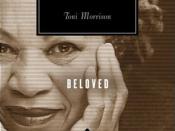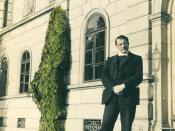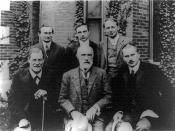What are dreams? Are they images of a better life? Why do we have dreams? Is it to maximize our desire? What if our dreams come true? Will we be happy forever? All of these questions and more are easily and simply raised but hardly answered.
This paper talks mainly about dreams in Toni Morrison's Beloved by comparing the characters having parts in these dreams to Jungian archetypes, to have a critical view of this topic and to prove how far the archetypes of Jung are universal and valid for every place and time. According to Webster's New World Dictionary the word "dream" conveys several meanings. I'll mention all the definitions provided by this dictionary because most of them are going to be useful in further parts of the paper. "Dream: 1-a sequence of sensations, images, thoughts, etc. passing through a sleeping person's mind. 2-a fanciful vision of the conscious mind; daydream; fantasy; reverie.
3-The state, as of abstraction or reverie, in which such a daydream occurs. 4- a fond hope or aspiration. 5-anything so lovely charming, transitory etc. as to seem dreamlike". (Webster's). Why would one chose such topic like dreams to talk about in a novel that contains no more than one dream in the traditional concept -the one happening during sleeping - and the answer is that the whole novel seems like a, dream, and dreams are found in an unusual way throughout the story to reach a higher and more general dream at the end.
Carl Jung had accomplished a very wide detailed study concerning dreams, in which he revolted against Freud's perception that all human motivations have to be sexual. Jung's theory of the unconscious differs from that of Freud in most of these respects and as a result so also does his conception...


